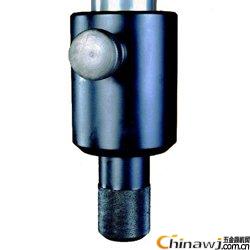Assessing the mechanical and wear characteristics of the repair material and analyzing the durability of the adhesive is critical to improving dental equipment and implants. The customer conducts bending, tensile and shear strength tests on the product and the adhesive. Repairable materials are required to provide wear resistance and durability tests. Si Furnace Lining Sic Paste,Lining Sic Paste,Furnace Lining Sic Paste,Electric Furnace Lining Ramming Paste Pingluo Zhongxing Carbon Co.,Ltd , https://www.ztecarbon.com
The mechanical properties of dental products are tested to demonstrate their performance in a variety of applications. E.g. Compression tests of resin modified glass ion and resin matrix composites are used to compare the mechanical strength of conventional cements in dental applications (ISO 4049). Tensile bond strength is very important for hydrocolloid impression materials (ISO 13716). ISO 6872 covers test methods for fixing all-ceramic and metal-ceramic restorations and restoration dental ceramic materials. Bending strength includes ceramic dental fillings, crowns, veneers, implants and stents. The three-point bending test and the four-point bending test in this test are common bending tests.
Assessing the mechanical and wear characteristics of the repair material and analyzing the durability of the adhesive is critical to improving dental equipment and implants. The customer conducts bending, tensile and shear strength tests on the product and the adhesive. Repairable materials are required to provide wear resistance and durability tests. A standard chewing cycle helps to assess the relative wear of different materials and to determine the wear mechanism. Considerable research has explored the efficacy of new dental adhesives in orthodontic disciplines. The orthodontic stent is necessary for the shear strength, the shedding strength, the shear peel strength and other mechanical strength tests on the enamel surface, and the tensile strength test is also required for the floss.
ISO/TS 13498 Human Implant Torsion Test / Bone Tooth Implantation System Joint Joint Torsion Test: ISO/TS 13498 aims to establish a torsional yield strength for the joints of implants and intraosseous implant systems. Test method for maximum torque. This test standard is best suited for evaluating new joints and connectors, as well as for new materials.
ISO 9917 Water-Based Dental Cement: ISO 9917 specifies the requirements and test methods for dental adhesives that are intended for permanent bonding and sealing.
ISO 6872 dental ceramic flexural strength: ISO 6872 specifies the requirements and corresponding test methods for fixing all ceramic and cermet restorations as well as dental ceramic materials for restorations. The flexural strength test specifications provided by ISO 6872 include, but are not limited to, ceramic dental fillers, crowns, veneers, implants, and stents. Three-point bending and four-point bending tests are usually required.
Suitable for testing models: TR311 double column electronic universal testing machine.
ISO 6872 special bending fixture G6872-543: This fixture consists of three 3.2mm steel balls, equally spaced 120°, on a circle with a diameter of 10mm. The plate loading end has a diameter of 1.4 mm and the furniture can accommodate samples between 12 mm and 15.5 mm.
ISO 4049 Tooth Bending Test: ISO 4049 specifies a three-point bending test for dental polymer-based restorative materials that are primarily used for direct or indirect repair and sealing in the cavity. The polymer-based bonding materials included in ISO 4049 are used for the repair and fixation of prostheses and devices such as inlays, onlays, veneers and crowns.
Applicable test model: TR100 economic single column universal testing machine
ISO 4049 special fixture: G238 bending fixture
ISO 22674 Fixed and removable restorations and equipment Metallic materials: ISO 22674 classifies metals suitable for the preparation and restoration of dental appliances, including recommended metal materials, with or without ceramic plates or both, and Specify their requirements. It further specifies the requirements for the labeling of the product and does not provide instructions for using these materials.
ISO 20795 denture and orthodontic polymer
ISO 20795 denture-based polymers: Classify and define the requirements for base polymers and copolymers, as well as test methods for determining compliance with these requirements. At the same time, the product packaging, labeling and instructions for use provided with the accompanying materials are specified.
ISO 20795-2 orthodontic base polymer, this standard applies to the production of active or passive active orthodontic appliances orthodontic base polymers and copolymers, and specifies the requirements.  Editor: (Hardware Business Network Information Center) http://news.chinawj.com.cn
Editor: (Hardware Business Network Information Center) http://news.chinawj.com.cn 